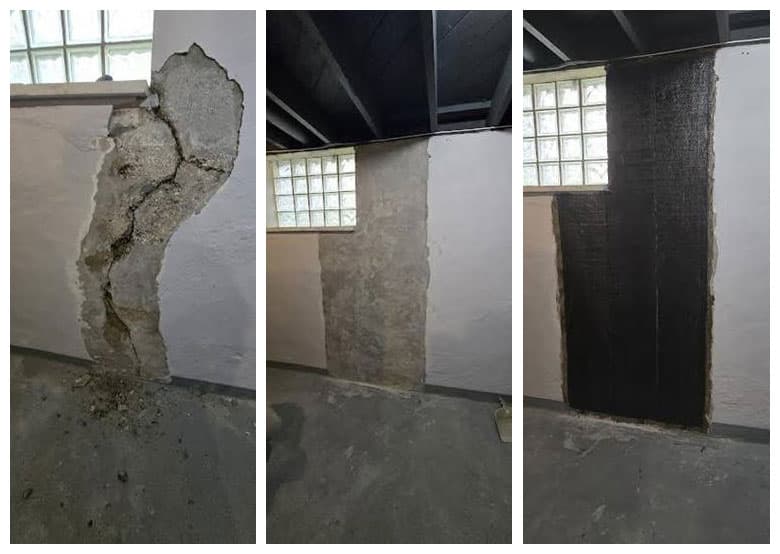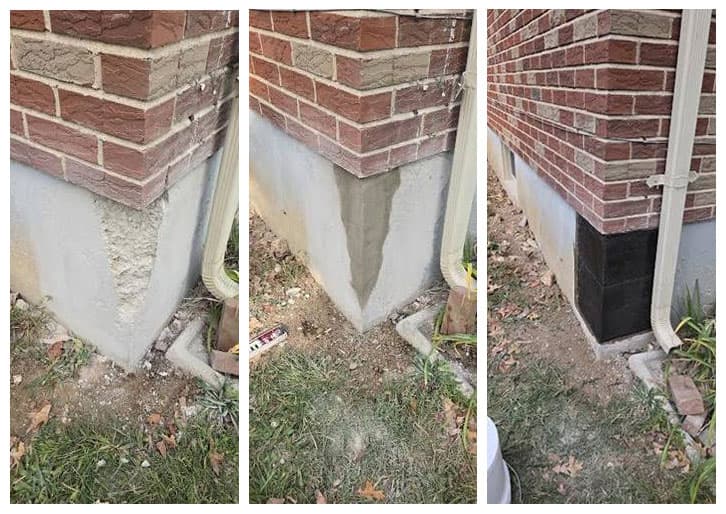Foundation cracks are definitely a cause for worry, however, not all cracks require immediate action. Whether you are seeing a tiny fissure or a more concerning gap, it is crucial to identify the type of crack to know what you are dealing with. Here we dive into the common types of foundation cracks, how to determine if they are problematic, and when to call in the pros, The Crack Crew.
To learn more about the types of foundation cracks and find out what your cracks are trying to tell you, contact the experts at our foundation and basement waterproofing company today online or by phone at 314-805-5692.

Common Types of Foundation Cracks
So when is a crack just a crack and when is it a structural issue? The best way to answer this is by reviewing the different types of foundation cracks. Here are the most common types you will come across:
Hairline Cracks
These are typically less than 1/16 inch wide and often found in newer homes. They usually appear due to the natural curing process of concrete and are generally not a cause for concern unless they start growing.
Vertical Cracks
These cracks run up and down and are fairly common in foundations. They usually occur due to concrete settling or tension from soil pressure. Normally, these are not as worrisome as long as they remain narrow.
Horizontal Cracks
Horizontal cracks are often more serious. They indicate pressure from water-saturated soil pushing against the foundation walls. This type of crack warrants immediate attention and potentially significant foundation crack repair.
Diagonal Cracks
Diagonal cracks appear at an angle, usually between 30 to 75 degrees. Generally caused by differential settlement (where one part of the foundation settles faster than another), these cracks can vary in severity. They are particularly concerning if they widen over time.
Stair-Step Cracks
Often found in brick or concrete block walls, these cracks form a staircase-like pattern. These are usually due to foundation settling and can vary from minor to severe based on their width and growth rate.
Settlement Cracks
Settlement cracks usually run vertically or diagonally and are caused by natural settling of the soil beneath the foundation. They are common in new construction, but anything wider than 1/4 inch should be inspected by a professional.
How to Know if Foundation Cracks Are a Problem
Not every crack you see is a potential problem, but certain signs should raise alarms. Here are some things to keep in mind:
- Width and Length: If a crack is more than 1/4 inch wide, it is time to call a specialist.
- Growth: Keep an eye on whether the cracks are expanding over time. Rapidly growing cracks are particularly worrisome.
- Moisture: If you spot water seeping through the cracks, it could indicate a leak, which can lead to serious structural issues.
- Alignment: Check if the cracks are shifting in alignment or if they seem to be causing other structural issues in your walls or floors.
- Multiple Cracks: Multiple cracks can be a sign of a more significant problem with your foundation.

When to Call The Crack Crew for Foundation Crack Repair
For residents of St. Louis and surrounding areas, The Crack Crew is the go-to company for foundation repair and basement waterproofing. Whether you are dealing with a simple hairline fracture or a more complicated horizontal crack, our team has the expertise and tools needed to fix it right.
Foundation cracks can be tricky to navigate. However, understanding the types and knowing when to seek professional help can save you a lot of headaches and financial strain. Contact us today to learn more.
